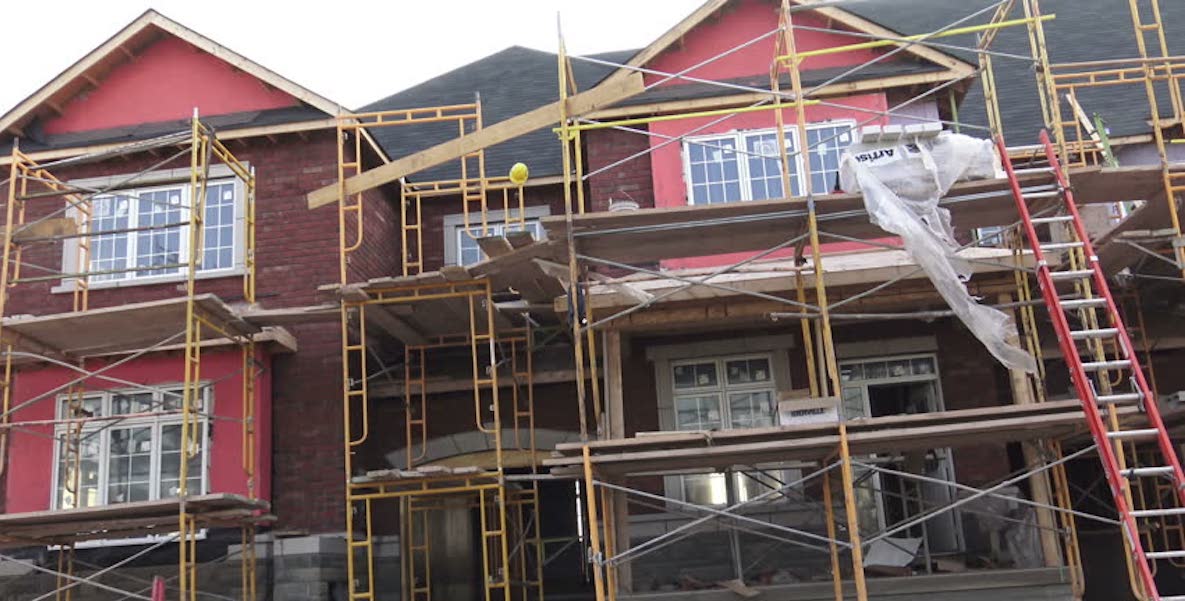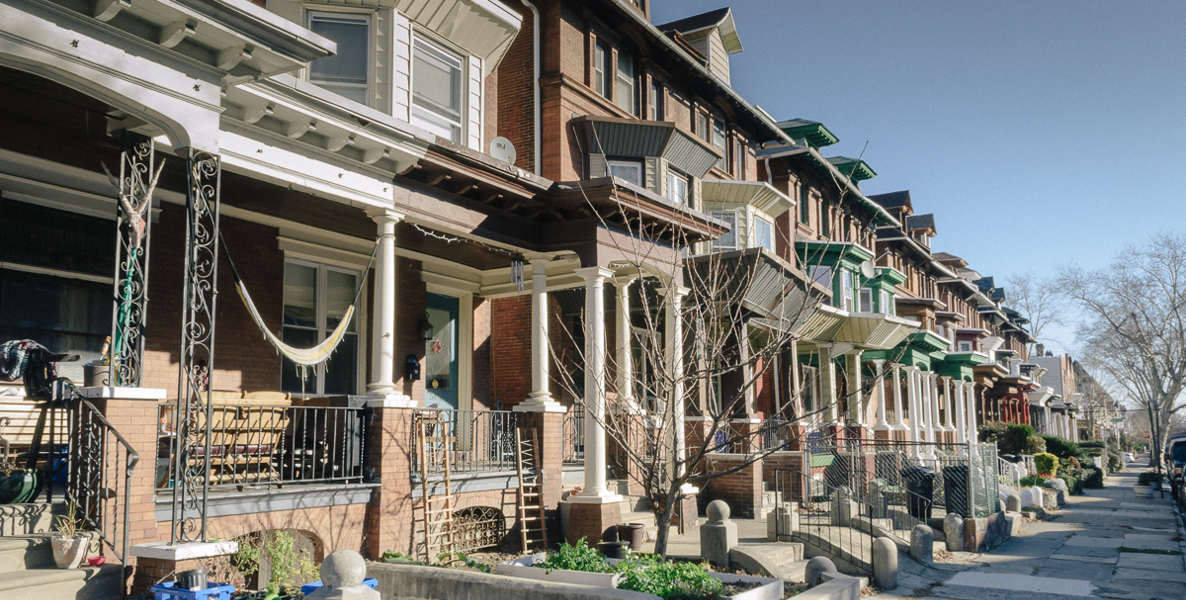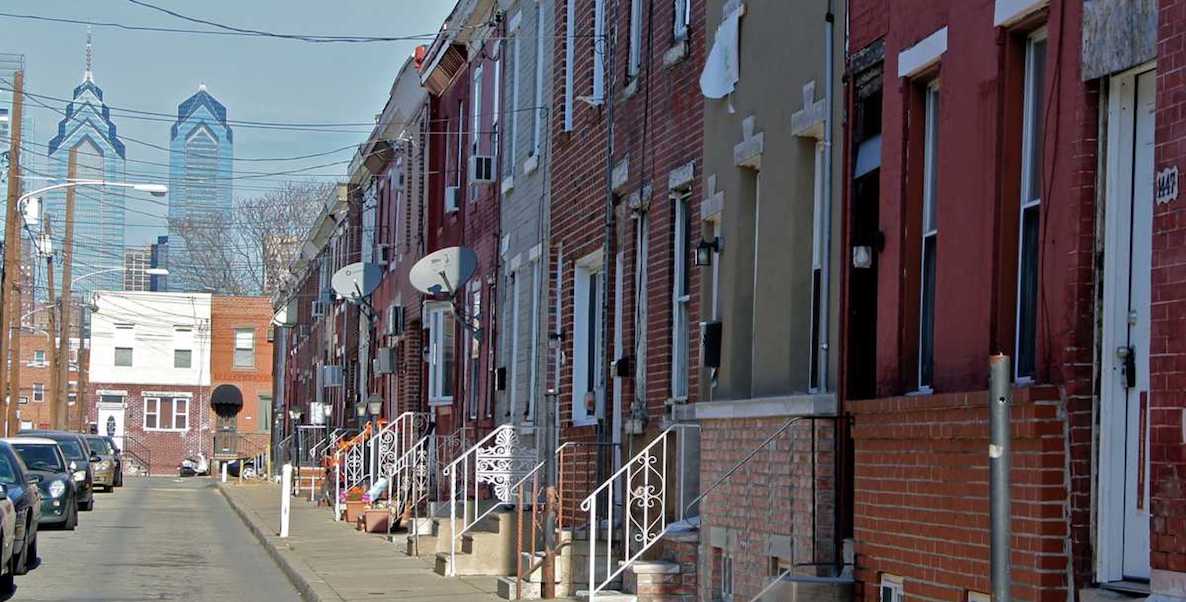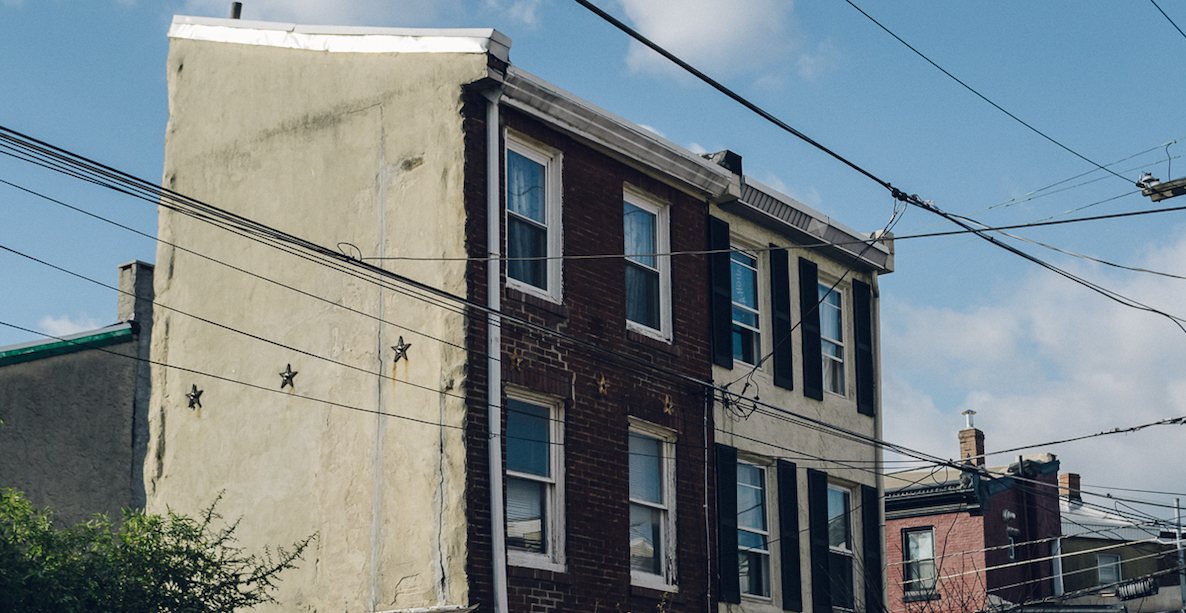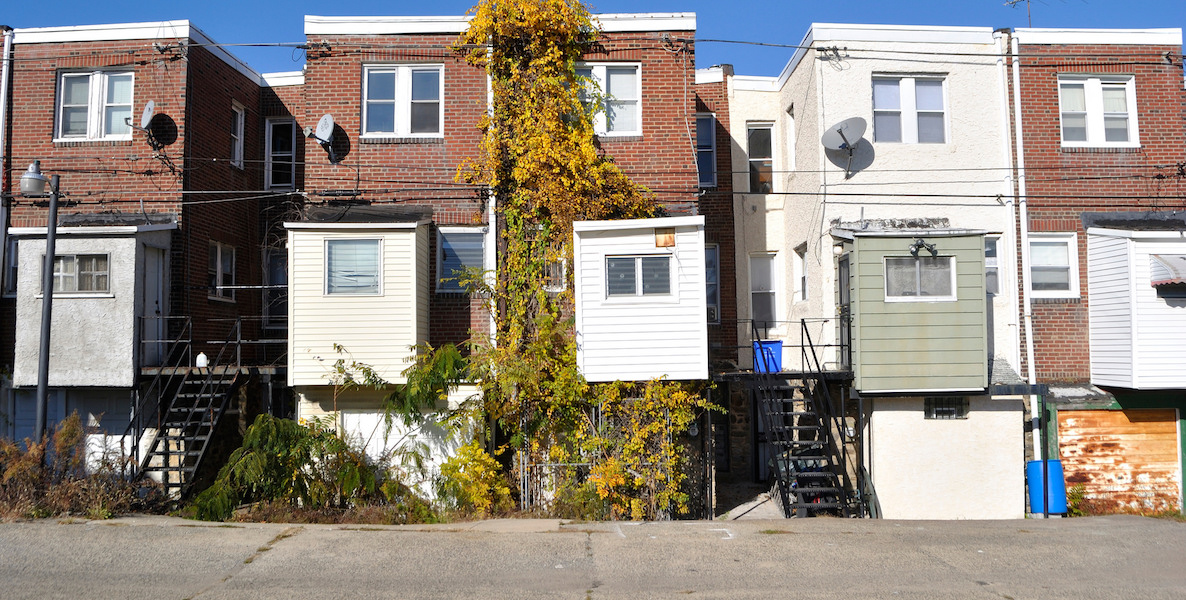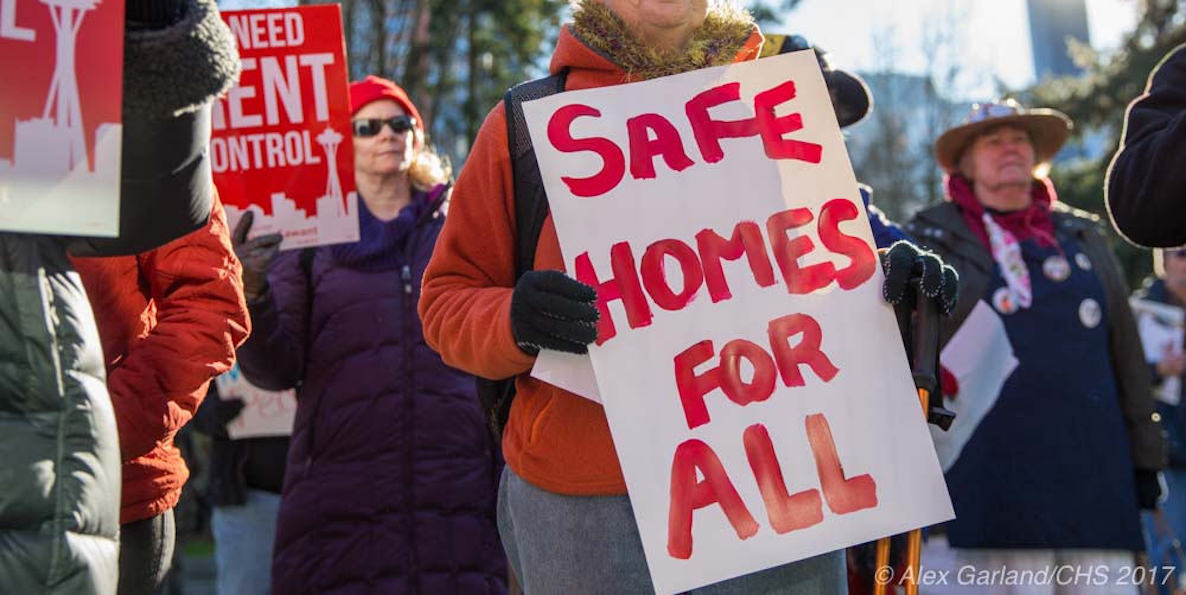Philadelphia clearly has an eviction crisis. It’s ranked fourth for number of eviction court filings out of the nation’s largest cities, and is the largest big city and one of few in the northeast to crack the top 100 in court-ordered evictions. But when faced with a crisis of that magnitude what can a city as distressed as Philly do about it?
One thing it can’t continue to do: permit lawmakers to parade policy through City Hall as if they’re really doing something when they’re not.

Philly faces that dilemma routinely: the need to find motivation and some sense of movement through psychological political boosts pressed against the need to actually do something substantial. In the case of evictions, Councilman Curtis Jones offers a victory lap on recently passed “Good Cause” legislation that, at its core, is relatively toothless. Principally, it gives the impression of good intentions simply because it promotes the aim of forcing landlords to provide “good” or “just cause” before kicking a tenant out.
Yet, a quick glimpse into the law—recently passed by City Council in a rush of pre-holiday optics–reveals that it’s barely that. On its face, at best, Bill 170854-A02 is symbolic; Council wants to show it’s paying closer attention to evictions. A deeper look into it, however, disappoints because even policymakers acknowledged the bill won’t mean problem solved.
Compare this to what happened in New York City this month, where—after scathing reports about landlord misconduct in The New York Times—its City Council introduced 18 bills aimed at protecting tenants in that city’s booming real estate market. The provisions are New York-specific—and many address better enforcement of existing laws—but the package of legislation that is likely to pass showed a concerted and organized effort to address the growing national concern over evictions and lack of affordable housing in cities.
From our City Council’s actions, you’d have no idea Philly faces these same issues.
ALL LEASES SHOULD BE EQUAL
A fatal problem with the “Good Cause” bill as it’s now been passed is that Jones, frustrated from a year of watching the bill languish, ultimately succumbed to the wishes of real estate owners and property managers. Most notably, Jones relented and revised the bill to only address month-to-month leases, not annual leases—even though most leases, according to the landlords association, are annual. This means the bill lost its entire upper front row of teeth along the way.
On its face, Bill 170854-A02 is symbolic; Council wants to show it’s paying closer attention to evictions. A deeper look into it, however, disappoints because even policymakers acknowledged the bill won’t mean problem solved.
Hence, there wasn’t much of a big win for struggling low-income and even working middle income tenants. Instead, it could just prompt landlords to transition tenants to an annual lease—as Victor Pinckney, vice president of the Home Owners Association of Philadelphia (HAPCO), told PlanPhilly he would do with his properties last month. That move effectively undercuts the core purpose of the bill, thereby gutting it shortly after its passage. (HAPCO also said it may try to have the bill overturned in court.)
Tell City Council what you think Do Something
Jones claimed victory and described to WURD’s Reality Check the difficulty of “negotiating nine [needed] votes out of City Council” but “it wasn’t over… there’s more to come, we’re working on other bills.”
Yet, it’s unclear how passing a broadly weakened bill sets the right tone for any good future policy. A better “Good Cause” bill would have set the momentum for a bigger battle for all leases as opposed to a provision that allows landlords the ability to shortcut the law.
WHAT ABOUT LEGAL AID FUNDING?
There were other areas where Jones and his co-sponsors could have stood their ground and used the negotiations as a cause’ politique highlighting the raggedy and pernicious state of renting in Philadelphia. Perhaps that could have forced a conversation on whether landlords, as a lobby, are contributing enough to fix the city’s rental and affordable living crises, rather than exacerbating the problem because they don’t want to miss out on the real estate boom.
The bigger, more potent conversation, though, is not so much slapping landlords on the wrist for abusing the eviction model. It’s a matter of pursuing policy which directly tackles a climate where more than half– 53 percent–of Philadelphia renters are “cost overburdened.” That suggests more than a quarter of residents are spending 30 percent or more of their entire monthly income on rent. In a city where nearly half the residents are renting, that’s an unsettling recipe for permanent, irreversible poverty.
It’s unclear how passing a broadly weakened bill sets the right tone for any good future policy.
If anything, any bill painting itself as a key tool in the city’s eviction mitigation efforts should contain elements at the outset. Instead, Council decided to pass on the opportunity to infuse recommended “right-to-counsel” legal aid funding, which should have naturally been plugged into the bill. The Philadelphia Bar Association’s recommendation for a $3.5 million fund to legally protect evicted tenants would actually save the city nearly $45 million in accumulated “public costs.” That figure is more than what city leaders lose if they sell the old proposed police headquarters site at 46th and Market for $10 million … as opposed to making back the $52 million they originally spent on it (for a property appraised at $100 million).
STRENGTHENING VOUCHER NON-DISCRIMINATION LAWS
The situation in hot real estate pockets throughout Philly, such as what spreads beyond University City, is something in dire need of resolution. In West Philadelphia “it’s out of control, it’s a damn shame, people are daily being put out on the street and it’s at epidemic levels,” a City Hall source complains to Reality Check. “And much of it is Section 8 landlords now wanting to cash in.” After, in some cases, decades of dealing with low-income tenants, many large property owners are ready for a retirement-inducing return on their years-long investment.
Of course, hats off to any one making extra coin or finding opportunities through investment properties. We shouldn’t begrudge an individual or family or business that does that. But should that real estate gold rush of property flips occur at the expense of other human beings? The first order of business would be finding ways to protect home owners–again, human beings–from being directly victimized by that activity. This could have evolved into a key component of the “Good Cause” bill, perhaps even altering its title and purpose into a “Low Income Tenant Protection” law.
as a Philadelphia tenantKnow your rights
Or: Jones and others could have simply looked at existing “Source of Income” laws in Philadelphia, covered under Chapter 9-1100 of the city code, and strengthened its enforcement. Much of the eviction crisis in Philly is, from what policymakers and housing advocates are seeing, being aggravated by landlords–whether Section 8 or not–making a decision not to deal with low-income tenants (including those who are paying on time) in favor of wealthier Philly developers, gentrifiers and higher income tenants.
A recent Housing and Urban Development study that dropped in August researched five cities–Philly among them–and found disturbingly high “housing voucher discrimination” rates in Philadelphia, meaning landlords in Philly refuse to accept federal subsidy money that’s provided for low-income tenants by HUD. It ranked third behind Los Angeles and Fort Worth, but voucher denial rates in Philly hovered near 70 percent–which was higher than cities like Washington, D.C. and Newark, where they don’t even have voucher or source of income discrimination laws.
The bigger, more potent conversation, though, is not so much slapping landlords on the wrist for abusing the eviction model. It’s a matter of pursuing policy which directly tackles a climate where more than half– 53 percent–of Philadelphia renters are “cost overburdened.”
What’s happening then in Philly despite the existence of Fair Practices Ordinances? Much of it has to do with lack of enforcement and communication. As October research from the Center for Budget and Policy Priorities reveals: “Among reasons that may dampen SOI laws’ potential impact, interviewees mentioned limited awareness of the law among voucher holders and landlords, lack of enforcement of the law, and deficient management of local voucher programs.”
The revived focus in City Council, through the “Good Cause” legislation on leasing, could have revived a discussion on what Philly isn’t doing on that matter.
about housing in PhillyRead More
Perhaps the biggest issue here is City Council’s refusal to, as they did in New York, take a comprehensive approach to how we truly address the city’s affordable housing crisis. I’ve said it before: Philly requires a dramatic change in mindset on this issue. If indeed Jones goes back to the drawing board on this, he would do well to broaden his scope, considering things that have worked to help renters in other parts of the world, like rent stabilization or brakes, rental subsidies, transit-based development and—the perennial issue in a city where 25 percent of people live in poverty—attracting better-paying jobs to an increasingly expensive city.
Until that happens, City Council might want to dial back a bit on the celebrating.
Charles D. Ellison is Executive Producer and Host of “Reality Check,” which airs Monday-Thursday, 4-7 p.m. on WURD Radio (96.1FM/900AM). Check out The Citizen’s weekly segment on his show every Tuesday at 6 p.m. Ellison is also Principal of B|E Strategy, catch him if you can @ellisonreport on Twitter.



